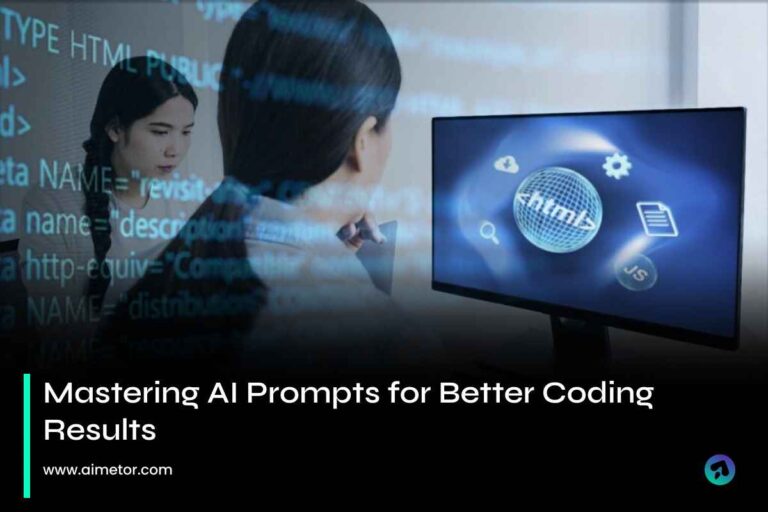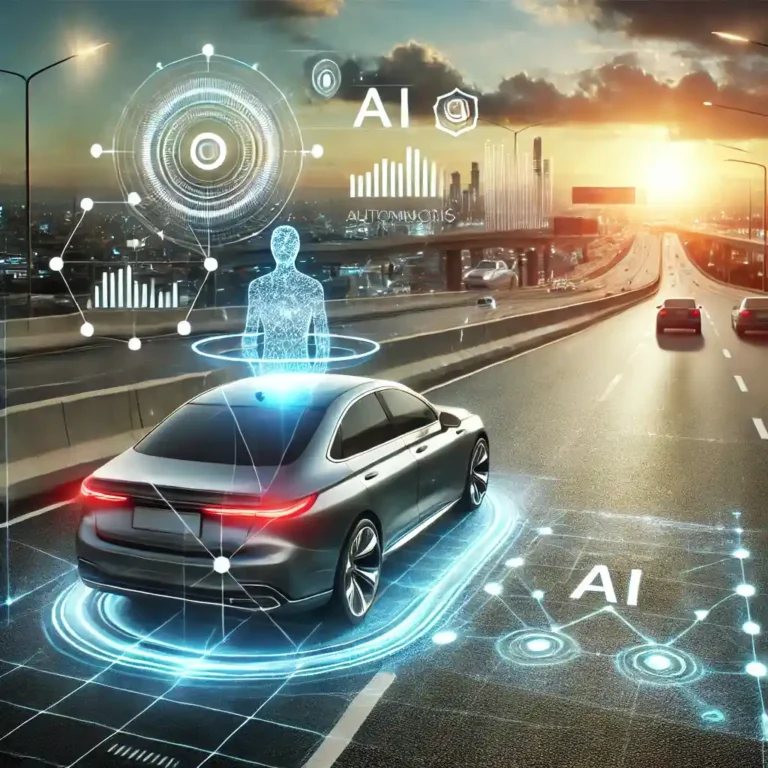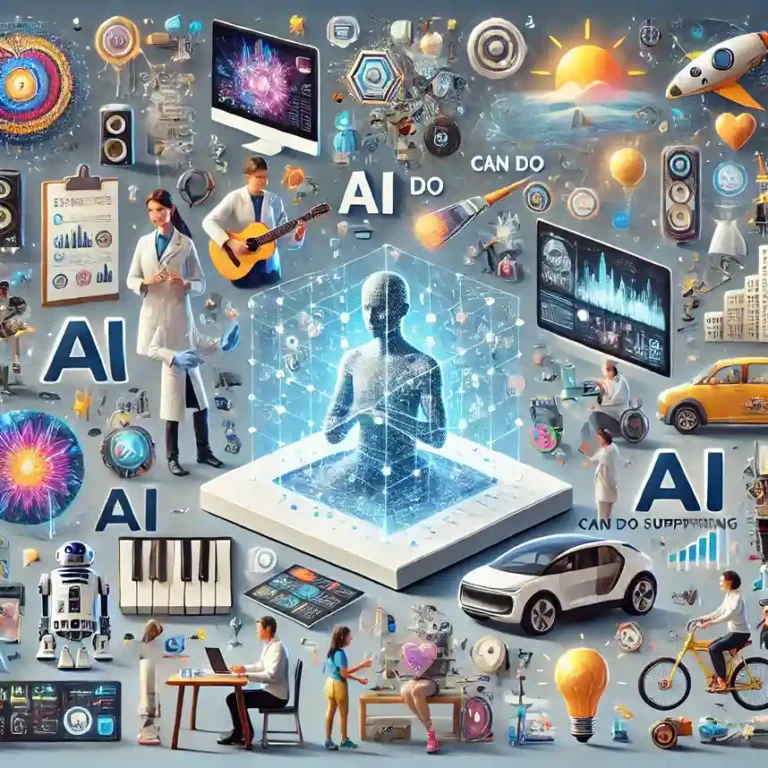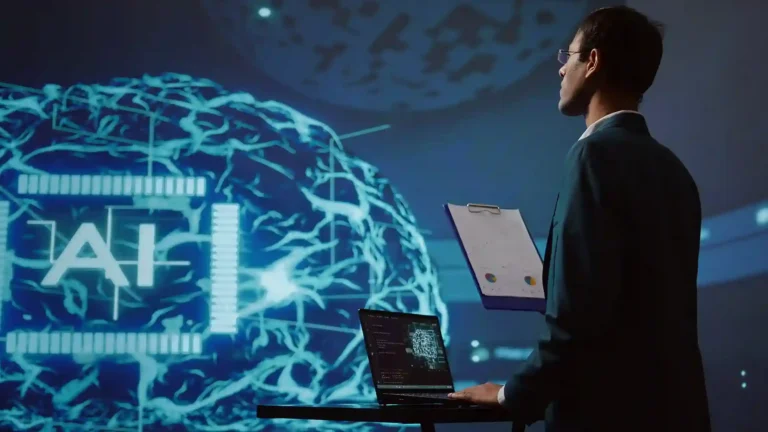What AI Brings to CI/CD for DevOps: Find out Now
How AI is Transforming DevOps: The Future of Continuous Integration and Continuous Deployment (CI/CD)
DevOps teams always strive to smooth-line the flow of their work to save time and deliver on time.
With the integration of AI in DevOps, teams are able to deliver quality work faster than ever. AI is especially very handy in Continuous integration (CI) and continuous deployment (CD).
What AI Brings to DevOps and CI/CD
AI optimizes the processes and automates tasks. These tasks usually would take a lot of time and effort along with human oversight. With the incorporation of AI in CI/CD pipelines, DevOps teams can automate the build and release process. Along with automation, it can also improve quality through code quality analysis, and anomaly detection. This allows teams to focus on other tasks rather than fixing issues. For example, A DevOps pipeline can automatically watch out for errors in codes and run tests without human oversight or intervention. This saves time and prevents potential issues in the codes.
The Role of AI in CI
Developers merge changes in the code into a shared repository in CI. AI-powered DevOps tools make this process smoother and more efficient.
- Code Reviews and Check for Quality: AI-driven tools can review the code, and check it for errors to ensure the quality. It identifies the bugs in codes at a very early stage.
- Error Detection: AI can detect errors in the codes by analyzing previous patterns. It can highlight or flag potential issues at an early stage, which reduces the chances of integration failures.
- Better Test Automation: In traditional testing, there are standard tests that are applied to test the code. However AI-driven testing automation prioritizes tests based on the likelihood of failure. This saves time spent on testing and increases efficiency.
- Improved Collaboration: AI helps DevOps teams to be better at collaboration. It identifies who should review or work on which parts of the codes, thus speeding up the CI process and ensuring the quality code reaches the final product.
The Role of AI in CD
Continuous deployment (CD) automated the release of new features or updates. AI helps to improve the CD process in many ways.
- Smart Deployment: AI-powered CI/CD pipelines make deployment faster and more responsive in real time. It learns from previous deployments and adjusts accordingly for better and smoother working.
- Anomaly Detection: Unexpected behavior is a problematic challenge in deployment. But AI can monitor deployment and can detect unusual patterns or anomalies at the earliest. This early detection reduces the chances of a failed deployment.
- Rollbacks: AI can start an automated rollback if something goes wrong. This makes sure the issues are contained before becoming problematic which results in less downtime and better availability of the services.
- Predictive Analytics: AI can predict the success or failure of a deployment and also highlight the risks associated with it. Predictive analytics in CD reduces the chances of failure and also improves confidence in the deployment process.
AI-Powered Monitoring
Monitoring is very important for any sort of production process including coding. It ensures that the application runs smoothly in production. AI offers real-time analytics and monitoring, which makes it an important ally.
- AI helps DevOps by monitoring applications continuously. It does so by analyzing data and by detecting any deviations.
- It is good at processing data quickly. AI can identify patterns that humans might miss to identify. This quality of data processing of AI is crucial for applications with high traffic.
- The ability to pinpoint the root cause of any problem is very important because this is how we will be able to solve the problem permanently and AI is better at it than the traditional method. AI-powered root cause analysis in DevOps is a great help in resolving issues more quickly.
Benefits of AI in CI/CD for DevOps Teams
The use of AI in CI/CD has many advantages including improved workflow, better product quality, and better efficiency of DevOps teams.
- AI-powered pipelines build, test, and make deployment processes faster, this helps teams update software more often and with great efficiency.
- A high level of quality is ensured by the ability of AI to detect errors and analyze patterns which results in increased reliability of the product.
- Predictive analytics and automated rollbacks help to resolve issues faster and with minimal downtime.
- Predictive maintenance capability of AI not only reduces operational costs but also identifies potential issues before they escalate.
Considerations and Challenges
Incorporating AI in CI/CD processes comes with some challenges too. One must always consider them before doing so.
- Integration of AI into DevOps workflow can be challenging and teams need to adjust the processes to make it a beneficial companion.
- Data privacy and security is very crucial. There is always a question of data privacy where AI is involved. To comply with the strict data protection laws and ensure AI-powered monitoring respects the privacy of the data can be challenging.
- AI can predict failures but it is not 100% accurate. So teams must prepare themselves for the cases where its prediction might be wrong.
- Management of AI is not an easy job, it requires experts in the field. So incorporating it into DevOps may require hiring expert personnel to manage it effectively.
The Future of AI in DevOps and CI/CD
The future holds exciting developments for AI in DevOps.
- In the future, we might encounter a fully autonomous pipeline that detects, fixes and deploys codes without humans.
- Machine learning models can make the CI/CD pipeline more personalized and can take AI’s predictive maintenance and analytics to new heights.
- As predictive maintenance becomes more streamlined, DevOps teams will see fewer errors and problems as AI will effectively identify and resolve potential issues.
Remarks
AI is providing better, more efficient, and smarter ways to streamline CI/CD processes. It does so by improving the quality of the codes, detecting anomalies in the codes, and automation of rollbacks. It equips teams with the ability to shine by delivering high-quality products in the minimum time possible. With AI-driven predictive analytics and automation of processes, CI/CD pipelines become stronger and more reliable.
Read more:
Discover how AI can boost efficiency and reduce workload in your side hustle.







One Comment